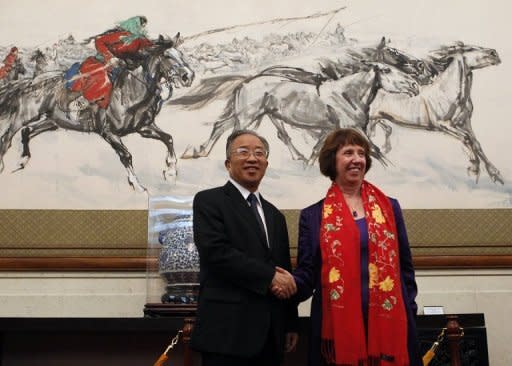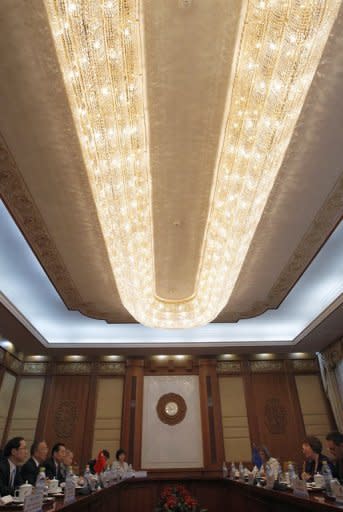China voices support for eurozone
China said Tuesday it believed Europe could resolve its debt crisis, as the two sides held a high-level meeting in Beijing that also covered thorny issues such as Syria, Iran and human rights. The third annual EU-China Strategic dialogue, aimed at paving the way for the next leaders' summit in Brussels this year, came as the eurozone stepped up efforts to tackle its crisis with a 30-billion-euro package for Spain. "China reaffirmed its support for European integration, Europe's efforts to solve its debt crisis, and the stability of the euro zone," said a joint statement released on Tuesday at the end of the talks. Europe is China's biggest trading partner and Beijing is a major holder of European debt, so China has viewed the eurozone crisis with alarm. But the Chinese co-chair of the dialogue, State Councillor Dai Bingguo, expressed strong backing for eurozone efforts to win the battle. "China is sincere and firm in supporting European efforts to deal with the sovereign debt problem," Dai told reporters. "We have every confidence in the future of Europe." His European counterpart to the talks, EU foreign policy chief Catherine Ashton, welcomed China's support and said she hoped the two sides would expand their economic ties. "We talked about the strong trade and investment links and our aspiration to see them develop," she said. However while China had in the past said it was looking at ways it could contribute to bailout funds to help Europe, it had not publicly announced any cash injections and no measures were announced on Tuesday. The dialogue was also focused on sensitive issues between China and the 27-country European bloc, including the 16-month-old conflict in Syria and Iran's nuclear programme. While France and some other European nations have said that Syrian President Bashar al-Assad must relinquish power, China has stood firm alongside Russia in insisting that the people of Syria must decide for themselves. Dai said Syria and Iran were discussed between the two sides, but he only reiterated to reporters China's long-held position on sensitive issues concerning other countries. "We should adhere to the ironclad principle of non-interference in others' internal affairs," he said. "At the same time it is very important to seek a settlement of various international issues by peaceful means through dialogue and cooperation." Ashton and Dai said human rights had been discussed, but no details were disclosed. While not resulting in any major breakthroughs, Ashton said the talks were an important opportunity to help the two sides better understand each other. "It has (also) enabled us to address issues of regional and international significance to both of us," she said.



